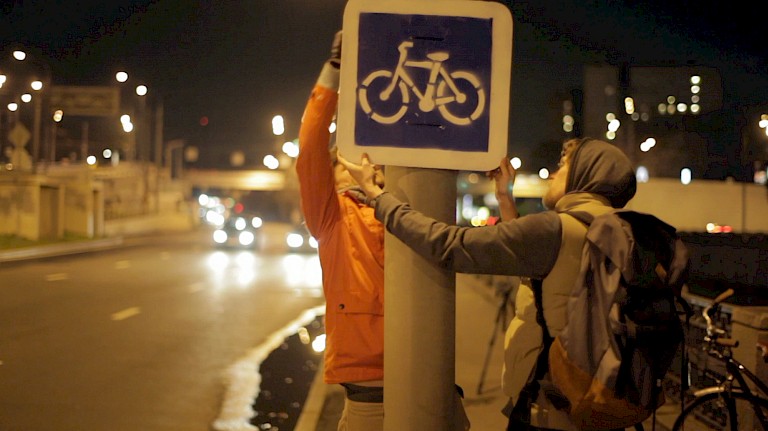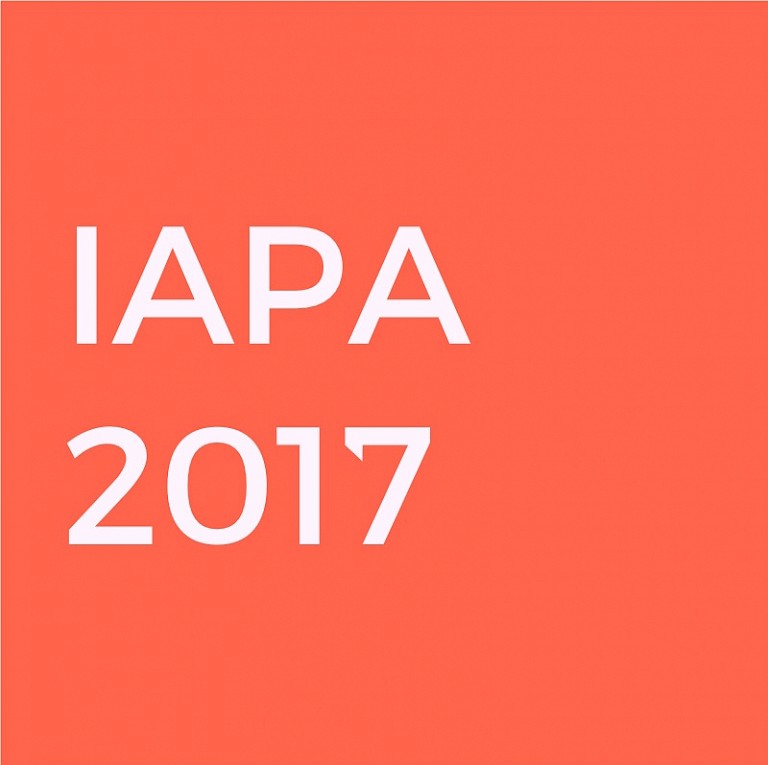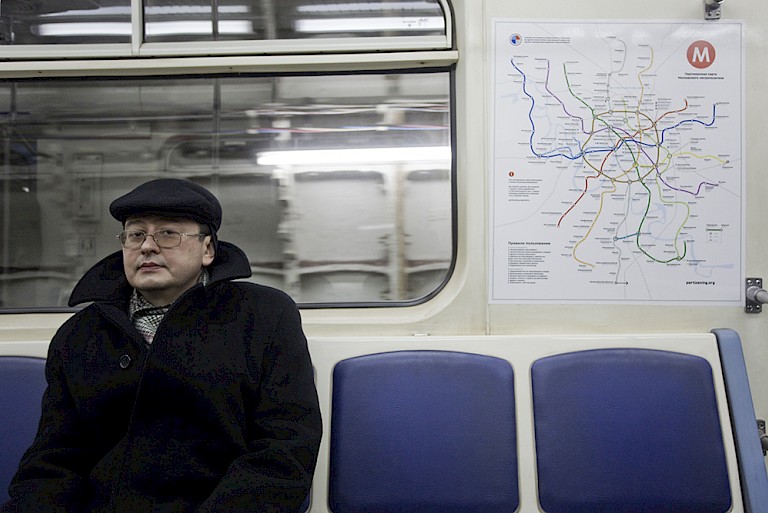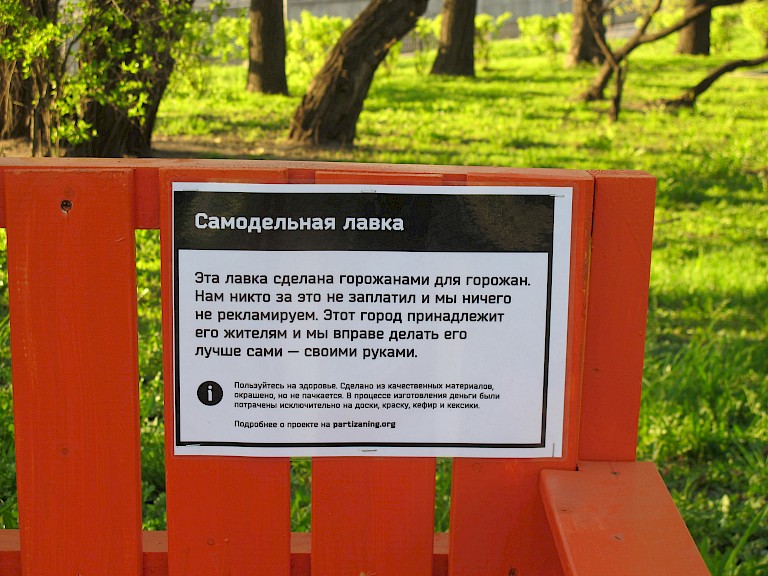



Some of the projects implemented by Partizaning group by spring 2012 include artist- and citizen-made pedestrian crossings and bike lanes in areas where municipal crossings and ways were not issued, although the traffic and pedestrian movement required these; benches, which many of the public spaces are lacking; ‘mailboxes’ in several problematic Moscow districts with instructions for citizens to submit their suggestions and requests about public space transformations (for further research, but also in order to catalyse thinking in this direction). Being slightly thinner than white stripes of the official zebra crossings, the crossings created by ‘Partizaning’ straightforwardly and openly demonstrate the guerrilla nature of the intervention, highlighting the main message: do it yourself. On several occasions, the artist/activist-made crossings were eventually replaced with official ones.
The benches painted bright orange were placed in several places around Moscow. The text on the label stated: “This bench is made for citizens by citizens. We have not been paid for it, and we are not advertising anything. This city belongs to its people and we can do it better ourselves — with our own hands. Feel free to use the bench as you like. It was made from high-quality materials, painted, and is not getting you dirty. During manufacture, the money was spent entirely on board, paint, yogurt, and muffins.” The puzzling destiny of one of the benches was covered online by the Echo of Moscow radio station. For some reason, the bench in one of the parks was repainted gray — the basic assumption was that the municipal technical workers found the colour orange ambiguous because of its connotations with political upheavals in the neighboring countries.
The mailbox project under the working title ‘Street art district’ was launched in Troparyovo district. It included the system of boxes for citizens to submit their complaints or suggestions for improvement of the district. The inscription read as follows: "Please, write what is missing in your area and drop a message in the box. We will make a map of issues and concerns, and we will try to fulfil them, or find someone who can do it better than ourselves. The programme’s message is ‘citizens for the citizens’. Within the program we collect opinions, complaints, and suggestions, and try to fulfil them based solely on our mutual enthusiasm. We are not being paid for it. Therefore please remember that a lot of what is bothering you can be fixed with your own hands.” The mailbox project kept growing. Based on the data collected in Yaroslavsky district in spring 2014, the multifunctional Moscow Youth centre launched programmes to discuss district changes and to conduct workshops with street artists, activists and urbanists. In such a way, activists wanted to involve local residents in the process of urban change.
Launched in 2011 in Moscow, Partizaning is a non-profit, self-funded, and low-budget ongoing project. It has a vast number of online supporters and cooperates with independent organizations in Russia, Ukraine, and Belarus.
All copyright belongs to Shanghai Academy of Fine Arts, Shanghai University.



